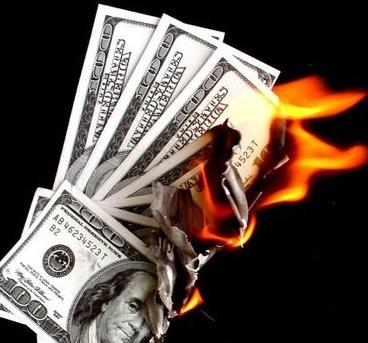Don’t Get Burned: Tax Pros Minimize Risk for Foreign Investors
By Al Barbarino March 5, 2014 2:00 pm
reprintsAs the city continues to roll out of the Great Recession and an optimism not seen in years permeates the real estate industry, foreigners from all over the globe continue to view New York as a safe haven for investment.
From Europe and Asia to the Middle East and South America, individual investors from abroad, as well as foreign developers, companies and other entities, are not only drawn to New York, they are also incentivized to invest their money here.
 As the real estate industry at large benefits immensely from this infusion of capital, so do the accountants and tax professionals standing in the shadows, assisting foreign investors before they get burned.
As the real estate industry at large benefits immensely from this infusion of capital, so do the accountants and tax professionals standing in the shadows, assisting foreign investors before they get burned.
“It has been a significant boost, because it has helped fund projects that otherwise wouldn’t have been funded. And as these projects move forward, it’s creating more and more work for us,” said James Wall, a principal at CohnReznick.
The tax implications are not always straightforward, and many of these investors are often unaware of the complexities surrounding foreign investment in the U.S. They might end up paying more taxes than they bargained for without careful accounting and tax professionals to guide them.
Regulations surrounding FIRPTA, EB-5, estate taxes, income taxes and a range of local and federal taxes are among those that can make investment in New York a complicated, strenuous process. For the city’s accountants, that’s the fun part.
“It’s been very exciting for us from the accounting standpoint,” said Mark Mindick, a partner at CitrinCooperman. “There’s consistent turmoil in outside markets, and we are here to make sure these investors don’t get hurt by U.S. taxation.”
One of the primary concerns is the U.S. estate tax. While domestic investors have a $5 million exclusion before paying such a tax, the nonresident alien threshold kicks in around $15,000, which essentially means that everything they own could be subject to the tax if they pass away, Mr. Wall said.
In many instances, tax professionals assist such investors in creating an offshore company that in turn will own an onshore company that would own the real estate, or in other instances, they may create an offshore trust under a U.S. LLC.
“People continue to come here and make mistakes,” Mr. Wall said. “All the time, we get calls from people saying, ‘I bought these three apartments, they’re in my name, and I heard that I could be subject to estate tax? What do I do?’”
If more than 50 percent of an investment is foreign-owned, it is also subject to the foreign investment in real property tax act (FIRPTA). And with commercial properties and condo development surging, onshore developers are in many cases more than happy to bring in foreign money to get those projects off the ground.
“It’s very difficult to get out of those structures without incurring a FIRPTA tax,” Mr. Wall said.
Foreign instability means that the relatively safe outlook in the U.S. and New York City is already a major draw for investors, and the EB-5 regulations further encourage the trend. The rules dictate that those investing $1 million (or at least $500,000 in a Targeted Employment Area, or high unemployment or rural area) are able to obtain a U.S. visa and ultimately a green card. The incentive is based on the premise that projects like condo developments and office buildings will foster job growth.
“You’re seeing some of the bigger players now using this program,” said John Schmuck, a partner at Margolin, Winer & Evens. “It’s just another source of dollars.”
But once you become a permanent resident of the U.S., you’re also a U.S. tax resident and are subject to U.S. taxes (including capital gains taxes, which are now at 20 percent) and reporting on worldwide income, which is governed by the International Financial Reporting Standards (IFRS) and U.S. Generally Accepted Accounting Principles (U.S. GAAP). In addition, green card holders becoming citizens could be subject to an exit tax if they wish to give up that status.
“It’s an educational process for them to understand what they’re getting into when they get a green card,” Mr. Wall said.
Market conditions continue to improve and attract foreign money, with banks lending more and a new and exciting wave of development rising around the city, from Hudson Yards to the World Trade Center site and neighborhoods throughout the boroughs. With EB-5 in place and an army of tax professional ready to assist foreign investors, the trend looks to continue.
“I don’t think there’s any end in sight in New York,” Mr. Schmuck said. “There are some discussions about another bubble building. I think the veteran New York families are more cautious, but I don’t think foreigners really see that bubble. They just view New York differently.”



